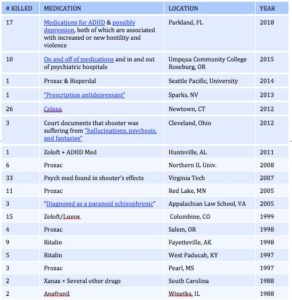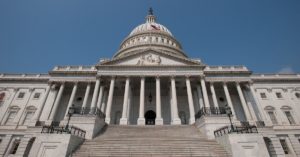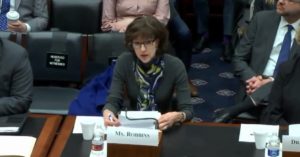The National Pulse: Turning Teachers Into Psychotherapists Will Not Prevent School Shootings
In other words, psychiatric diagnosis is guesswork, and predicting violent behavior in known patients, much less children briefly screened, does not work even when done by experts. So, given the possibility for misdiagnosis that has no medical privacy protection in schools and will be added to longitudinal databases, training teachers for a few hours to screen and diagnose mental illness seems foolish and dangerous.
Mental screening for “at-risk” students is notoriously inaccurate. One study of a mental health screening instrument called TeenScreen admitted that the survey “would result in 84 non-suicidal teens being referred for evaluation for every 16 youths correctly identified.” This is very dangerous when treatment could include psychiatric medications that have harmful or even fatal side effects, such as suicide, homicide, aggression and hostility, heart problems, brain changes, and many more.
The problem with mental screening in general and with labeling “at-risk” children with a psychiatric label is that the already admittedly subjective diagnostic criteria discussed above are even more difficult to apply to children. The World Health Organization has said (and there are many similar quotes available here):
Childhood and adolescence being developmental phases, it is difficult to draw clear boundaries between phenomena that are part of normal development and others that are abnormal.
Other psychological experts interviewed, even after the horrible Sandy Hook shooting, for The Washington Post story quoted above were opposed to expanded mental screening of children and teens:
“There is no instrument that is specifically useful or validated for identifying potential school shooters or mass murderers,” said Stephen D. Hart, a psychologist at Simon Fraser University in Vancouver who is the co-author of a widely used evaluation tool. “There are many things in life where we have an inadequate evidence base, and this is one of them…”
…“I think people are going toward wanting all their kids to be screened in high school for mental illness and violence risk — and that’s a bad idea,” said Gina M. Vincent, a forensic psychologist at the University of Massachusetts Medical School.
“We can’t go out and lock up all the socially awkward young men in the world,” said Jeffrey W. Swanson, a professor of psychiatry and behavioral sciences at Duke University.
The great irony of Sandy Hook, Parkland, and many other school and mass shootings is that the perpetrators were already involved in the psychiatric system, and many — an estimated 90 percent according to British psychiatrist Dr. David Healy — were already receiving medications or withdrawing from them at the time of their crimes. There is a known association between antidepressants like Prozac and violent behavior. There is also evidence of new or worsening aggression or hostility associated with drugs to treat ADHD like Ritalin. The Parkland shooter was reported in several places to be on ADHD medication and undergoing treatment for depression that may have included antidepressants.
See the table above and the full article for more details.
The National Pulse: Trump’s Budget Cuts Fed Role in Education — But Will Congress Follow His Lead?
The Trump administration’s fiscal 2019 education budget contains many reductions and eliminations that should give hope to parents and privacy advocates. But sadly, congressional appropriators seem almost as genetically incapable of eliminating ineffective, invasive, or harmful programs — despite mountains of data clearly documenting these programs’ uselessness — as they are of exerting any sort of fiscal discipline, as documented by the budget deal discussed last week that will only increase the $21 trillion deficit. So unfortunately, this budget will likely be dead on arrival in Congress unless citizens act.
Details on several areas of the education budget are available in the full article:
- Overall spending
- Data Mining, Privacy and Research
- Preschool
- 21st Century Community Learning Centers
- Mental Health in Schools
- Concerns
The National Pulse: Congress Explodes Deficit, Expands Nanny State Programs with Budget Deal
Despite courageous efforts by Senator Rand Paul, other fiscally conservative senators, and the House Freedom Caucus, as well as the objections of pro-amnesty Democrat members in both chambers, Congress passed a two-year budget deal early this morning that ballooned spending by $300 billion over the next two years, significantly enlarging the deficit. The bill also ended the military and domestic sequester and raised the debt ceiling by $1 trillion. The Senate vote was 71-28, while the House vote was 240-186. The government is now funded through March 23rd, which will give the Congress time to write out a detailed budget for the rest of fiscal year 2018.
The full article gives details on the bill’s funding for:
- Home Visiting
- Child Care and Development Block Grant
- Mental Health
- Higher Education
The National Pulse: APP’s Jane Robbins Reveals Dangers of Gov’t Data Mining to Congress (VIDEO)
On January 30th, American Principles Project senior fellow Jane Robbins gave outstanding testimony at a U.S. House Education and Workforce Committee hearing titled “Protecting Privacy, Promoting Policy: Evidence-Based Policymaking and the Future of Education.” She spoke eloquently about the critical need for data privacy over data security, the dangers of social emotional learning, and the enormous problems of steering students into certain careers based on predictive algorithms. You can watch her opening statement here.
The video of the whole hearing is available here. Here are some of the strongest points from her opening statement:
-
The Government Has No “Right” to Student Data
-
Citizens’ Data Belongs to Them — Not the Government
-
The Social Emotional “Craze” Is a Problem
-
This Data Could Be Used to Steer Children into Certain Careers
-
There Is No Perfect Way to Secure This Data
-
Data Collection Without Consent Is an Affront to Freedom
-
The Government Ignores the Data It Already Has
-
Allowing Access to Social Emotional Data Is a Serious Risk
Quotes and more details in the full article are available here.
Issues
- Assessments + Testing (25)
- Bullying/Sex Education (6)
- Child Protection League (2)
- Common Core Standards (78)
- Curriculum + Standards (65)
- Data Collection and Data Privacy (64)
- Early Education/Nanny State (75)
- Federal Education (128)
- International Education (6)
- LGBT Issues in Education (9)
- Media Appearances (4)
- PL/CBE (2)
- Planned Economy (11)
- Politics of Education (26)
- School Violence (9)
- Social Emotional Learning/Mental Health (52)
- State Education (89)
- Testimony/Presentations (17)
- Uncategorized (13)
- Unions (10)
Education Liberty Watch Projects
ELW Allies
- American Principles Project
- Cato Institute
- Conservative Teachers of America
- Constitutional Coalition
- Eagle Forum
- Minnesota Advocates and Champions for Children
- Missouri Education Watchdog
- Restore Oklahoma Parent Empowerment
- Stop Common Core
- The Pioneer Institute
- Truth in American Education
- What is Common Core – Education Without Representation





